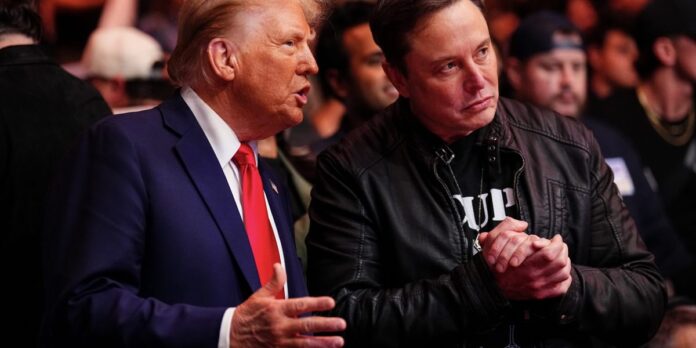Donald Trump has appointed Elon Musk to co-lead a new department focused on reducing government spending, raising concerns about potential conflicts of interest. Musk’s involvement in running several successful companies such as Tesla, SpaceX, X, and xAI raises worries that he may use his influence within Trump’s administration to benefit his own ventures at the expense of competitors.
Due to Musk’s business interests, there are concerns about how his role in the Department of Government Efficiency (DOGE) could impact regulations and contracts involving his companies. Experts like Richard Painter suggest that Trump’s decision to make DOGE an advisory body rather than a government entity may allow Musk and his co-chief Vivek Ramaswamy to avoid divesting financial assets that could pose conflicts of interest.
Even with advisory status, DOGE must follow transparency measures such as making records public, holding public meetings, and allowing public participation. Musk’s conflicts extend to areas like transportation, communication, AI, and federal agencies targeted for budget cuts. His involvement in AI, in particular, raises concerns about influencing policies that could benefit xAI and harm competitors.
In the realm of AI, Musk may collaborate closely with a potential AI czar appointed by Trump to advise on government policy and technology use. This collaboration could raise questions about steering government contracts to xAI or impacting regulations for AI companies. Musk’s influence on AI policies, self-driving technology, electric vehicles, and the operation of xAI’s Memphis supercomputer could pose conflicts of interest within the government and his companies.
While Musk has supported certain AI regulations in the past, concerns remain about his interactions with the government and the potential sharing of user data collected by his companies. The conflicts of interest involving Musk through DOGE are not new and have been seen in previous instances involving tech industry leaders advising the government.




